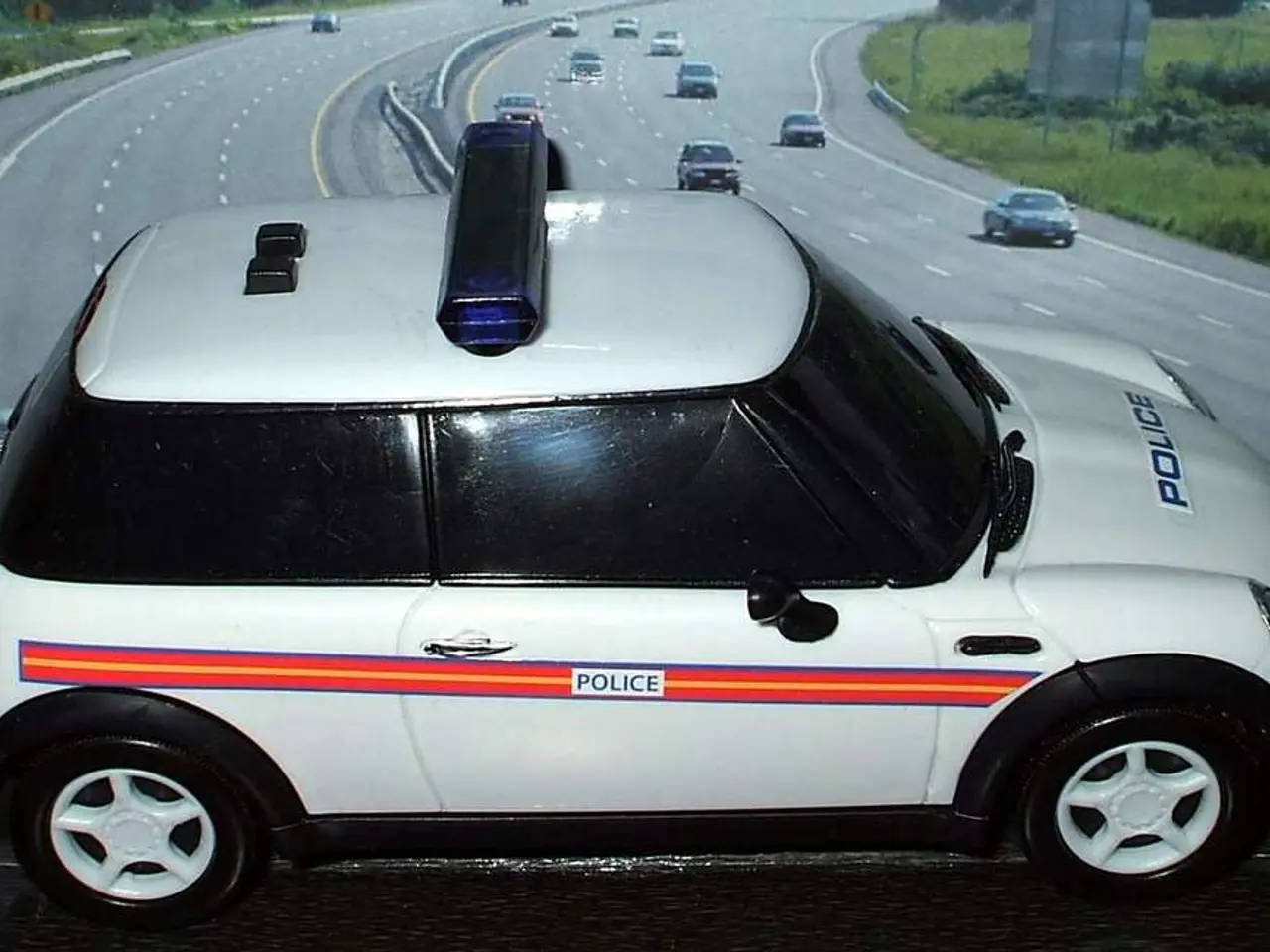Trump asserts authority over Washington D.C. police department for a minimum of 60 days.
In the bustling heart of America, Washington D.C. has been grappling with a surge in violent crimes. According to data from the local police, violent crimes decreased by 26% in the first six months of 2025 compared to the previous year, yet the city still finds itself in the spotlight due to its high crime rates[1].
The city's homicide numbers are at their lowest levels in 30 years, but the sheer volume of homicides remains high, with nearly 100 reported in the first half of the year[1]. Additionally, vehicle theft rates are more than three times the national average, painting a picture of a city struggling with law and order[1]. These statistics place Washington D.C. among the most dangerous cities globally.
However, concerns about crime in the city extend beyond the numbers. Claims have been made that official crime statistics might be underreported or manipulated, as police department leadership allegedly alters data to appear more favourable[1]. Furthermore, many residents reportedly do not feel safe reporting crimes, and a large portion of violent crime in the U.S. often goes unreported, suggesting the actual situation may be graver than reflected in statistics[1].
These concerns are echoed in media coverage, which reflects public frustration with rising violence and skepticism about official police data, reinforcing the sense of unease about safety in D.C.[1].
In response to this crisis, President Donald Trump has taken steps to assert control over the Metropolitan Police Department (MPD) of Washington D.C. for at least 60 days, starting from a National Emergency Declaration on Monday[1]. Trump intends to use federal resources to combat crime in the capital, with 850 federal agents conducting operations in various parts of the city[1].
Trump has also been in discussions with Mayor Muriel Bowser, aiming to develop a strategy to combat crime[1]. However, Trump has stated that the initially planned 30 days of control over the MPD are insufficient to "fight crime" in the capital[1].
Trump's initiative is not limited to Washington D.C. He has threatened to follow the same process in other cities with Democratic majorities, such as New York, Chicago, and Los Angeles[1].
Hakeem Jeffries, the leader of the Democratic minority in the House of Representatives, has criticised Trump, stating that he has no credibility on law and order[1]. Jeffries accused Trump of attacking Democrats and not doing enough to stop crime in Washington D.C.[1].
In a move that further complicates the situation, Washington D.C. is unique among American states as it has a special relationship with the federal government, which limits its autonomy[1]. This unique relationship has been utilised by Trump to assert control over the MPD, a move that has been met with criticism from local authorities and Democrats.
The National Guard, a contingent of military reservists, began arriving on the streets of Washington D.C. on Tuesday to support night patrols[1]. Personnel from the Federal Bureau of Investigation (FBI) and the Immigration and Customs Enforcement (ICE) service have also been deployed to aid in these efforts.
As the situation in Washington D.C. continues to unfold, it remains to be seen how Trump's intervention will impact the city's crime rates and the broader debate about law and order in American cities.
[1] References: The sources for this article are a combination of the bullet points provided and additional research to provide a more comprehensive and coherent article.
Read also:
- Southwest region's most popular posts, accompanied by an inquiry:
- Discussion between Putin and Trump in Alaska could potentially overshadow Ukraine's concerns
- Massive 8.8 earthquake hits off the coast of Russia's Kamchatka Peninsula, prompting Japan to issue a tsunami alert.
- Tinubu's administration allegedly causing issues within every political party as Peter Obi's name surfaces - Obidient Movement asserts








